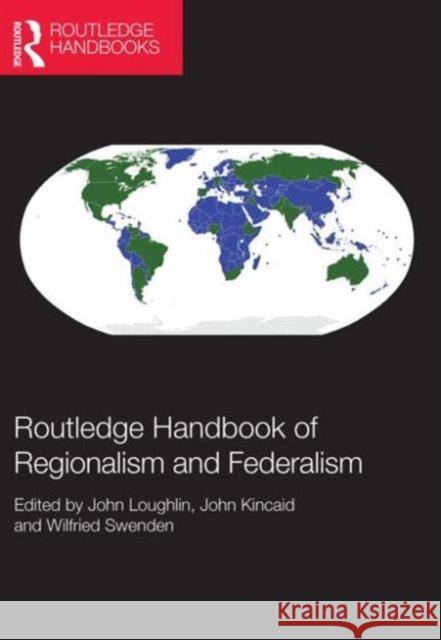Routledge Handbook of Regionalism & Federalism » książka
Routledge Handbook of Regionalism & Federalism
ISBN-13: 9780415566216 / Angielski / Twarda / 2013 / 624 str.
Routledge Handbook of Regionalism & Federalism
ISBN-13: 9780415566216 / Angielski / Twarda / 2013 / 624 str.
(netto: 1142,80 VAT: 5%)
Najniższa cena z 30 dni: 1057,85
ok. 16-18 dni roboczych.
Darmowa dostawa!
Federalism is a system of government in which central and regional authorities are linked in an interdependent political relationship in which powers and functions are distributed with the aim of maintaining a substantial degree of autonomy and integrity in the regional units. Federalism is a key organising principle in many countries including the United States, Canada, Brazil, Australia, India, Russia, Germany, Switzerland, Austria and Belgium as well as the European Union.
Regionalism is closely linked to federalism and refers both to the advocacy and institutional representation of the interests of a particular sub-national region and, in transnational terms, to the creation and implementation of institutions which express a common sense of identity and purpose within a geographical region. Examples of the former would include devolution in the UK, and autonomous regions within Spain, Italy, Poland and Romania while examples of transnational regionalism include the European Union, NAFTA, Mercosur, ASEAN and the African Union.
Traditional political science classified states as either federal or unitary with a clear distinction between each category. Over the past thirty years or so, however, this basic distinction has become increasingly inadequate to capture the complexity of evolving state forms. This complexity is largely a product of wider processes of change taking place in the economic, social, political and cultural spheres such as globalization, new forms of economic production and exchange and developments within administrative reform such as New Public Management and deregulation. In Europe, the accelerating processes of European integration and the partial strengthening of the federal aspects of the EU since the 1980s have also created a new situation of complexity for the EU s member states.
Research by scholars in the field of federalism and regionalism have shown the many different forms of federalism and regionalism. The complexity of these forms means that it has been necessary to develop new typologies which also demonstrate that there is now a considerable overlap between both federal and unitary states.
This Handbook draws together the main theoretical themes of this current research and provides a comprehensive overview of regionalism and federalism in contemporary global politics. It covers evolving forms of federalism and regionalism in all parts of the world and features a comprehensive range of case studies by leading international scholars.











